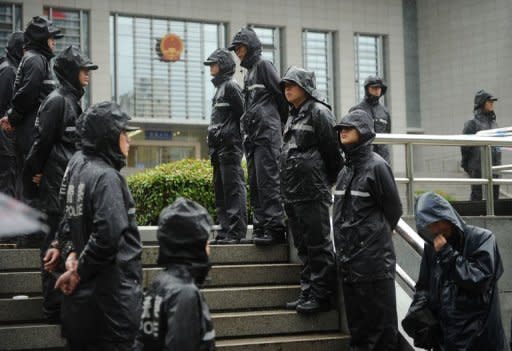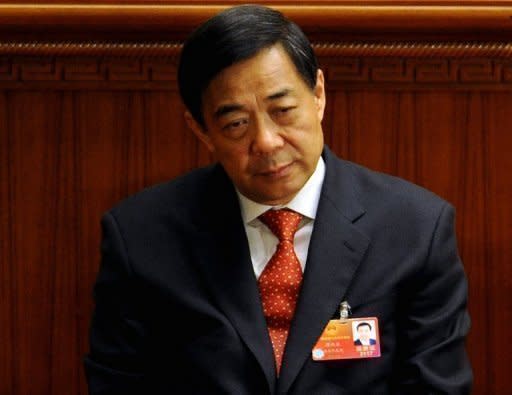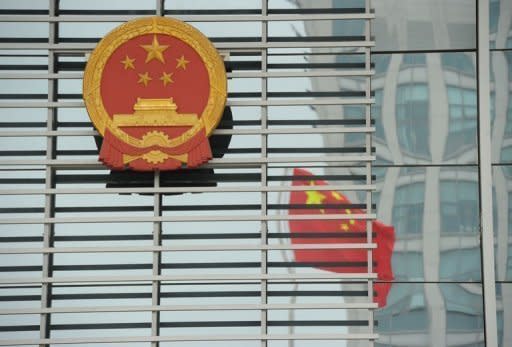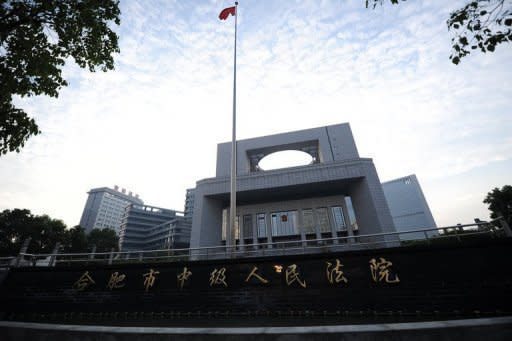China says Gu Kailai didn't contest murder charge
The wife of a former Chinese leader at the heart of a scandal that has rocked the ruling Communist Party did not deny murdering a British businessman during her one-day trial, which ended Thursday with no verdict, the court said. Gu Kailai was accused during the trial of poisoning 41-year-old Neil Heywood after going to drink with him in the hotel room where he was found dead last November, court official Tang Yigan told journalists. Gu's government-appointed lawyer did not challenge the charge, but said she had "made significant contributions by reporting offences by other people" and her cooperation should be taken into account, Tang said. He gave no further details, but state news agency Xinhua reported shortly after the hearing in the eastern city of Hefei that four police officials would go on trial for "covering up" Gu's alleged crimes. All four worked in the southwestern city of Chongqing, where Heywood died, and where Gu's husband Bo Xilai was Communist Party secretary until he was sacked in March after the allegations against his wife first emerged. Gu's trial was the latest stage in a scandal that has ended her husband's once promising political career and exposed deep divisions among China's leaders ahead of a generational handover of power that starts later this year. State television in a brief report on the trial showed images of her standing in the dock wearing a dark jacket and white shirt, although this was notably absent from the main evening news broadcast. In a sign of the huge sensitivity of the case, no foreign media were allowed into the Hefei court, although two British diplomats attended, in a rare concession. Tang said some of Heywood's friends and family were also there. Scores of uniformed and plain-clothes police were stationed outside the court, where a female protester was seen being dragged away and thrown into a police vehicle as the hearing got under way. Gu's trial has drawn comparisons with that of Chinese leader Mao Zedong's widow Jiang Qing, who along with the three other members of the "Gang of Four" was convicted for fomenting the tumultuous Cultural Revolution. Jiang was sentenced to death in 1981 but this was later commuted to life in prison, as is often the case for high-profile defendants in China. A lawyer acting for co-accused Zhang Xiaojun, an aide to the Bo family, also did not raise any objection to the charge during the brief hearing in the Hefei Intermediate Court, said Tang. "Gu Kailai is the prime offender and Zhang Xiaojun is an accomplice," said the court official, reading from a prepared script that said Zhang was accused of having carried the poison. Gu, a former international lawyer, saw her life of wealth and privilege ended abruptly when she was accused earlier this year of poisoning Heywood. The scandal ended the political career of her husband Bo, a high-flying but divisive Communist official known for his aggressive crackdown on organised crime and for a Maoist-style "red revival" campaign that alienated party moderates. Observers have characterised Bo's fall from grace as a victory for outgoing president Hu Jintao and premier Wen Jiabao, who favour economic and social reforms in China. None of China's main state-run newspapers covered the trial on Thursday and posts on the country's popular microblogging sites -- many of them complaining about the lack of transparency surrounding the trial -- were rapidly deleted. Internet searches for the names of Gu and Bo have been blocked for months under China's rigorous online censorship system. Some analysts believe that Gu will bear the harsher consequences while Bo, who has been placed under investigation for corruption, will be dealt with more lightly or after the leadership transition this autumn. "They are really focusing on getting Gu Kailai to pay," said Steve Tsang, a professor and director of the China Policy Institute at the University of Nottingham. "My bet is that Bo will get off relatively lightly and they are going to park Bo Xilai's case until after the succession, the party Congress." Xinhua has said Gu had "economic conflicts" with Heywood and feared for the safety of her son Bo Guagua, 24, who is believed to be in the United States where he recently completed a master's degree. Though Gu faces possible execution, legal experts say she is likely to be given a commuted death sentence that translates into 10 to 15 years in prison, with her concern for her son's safety providing a mitigating circumstance.





